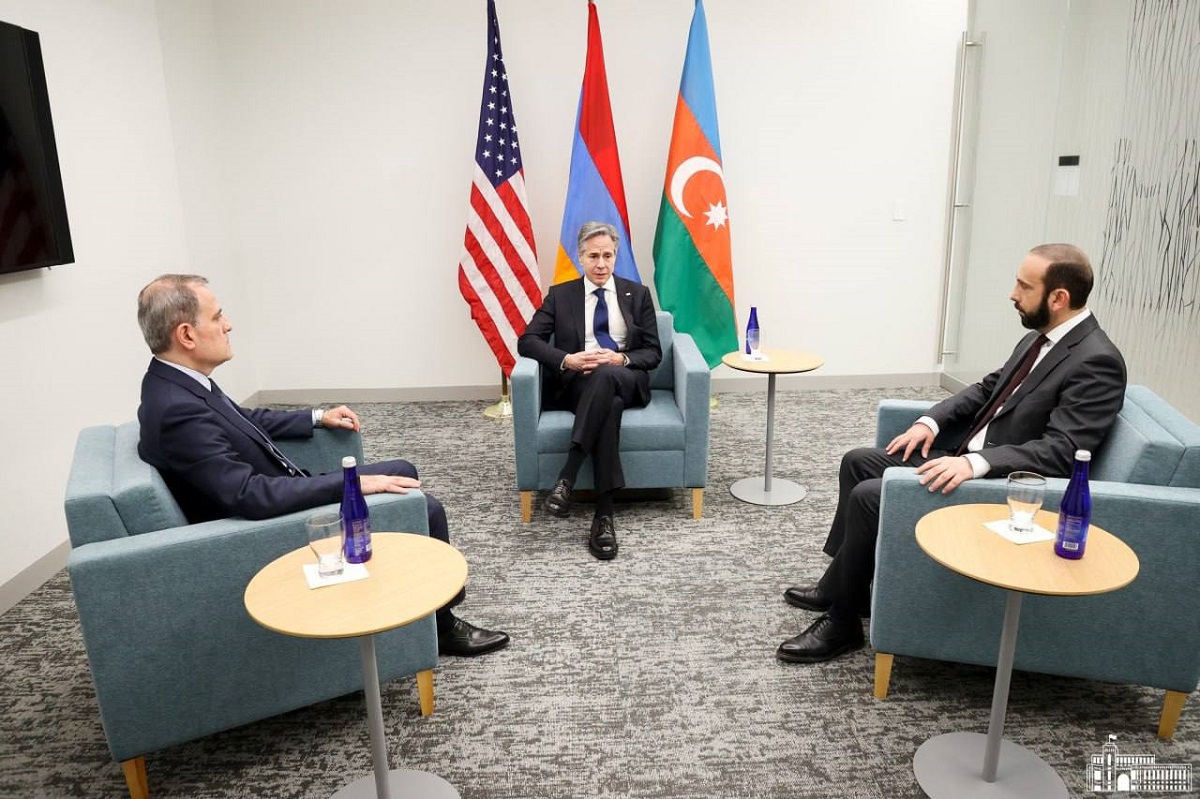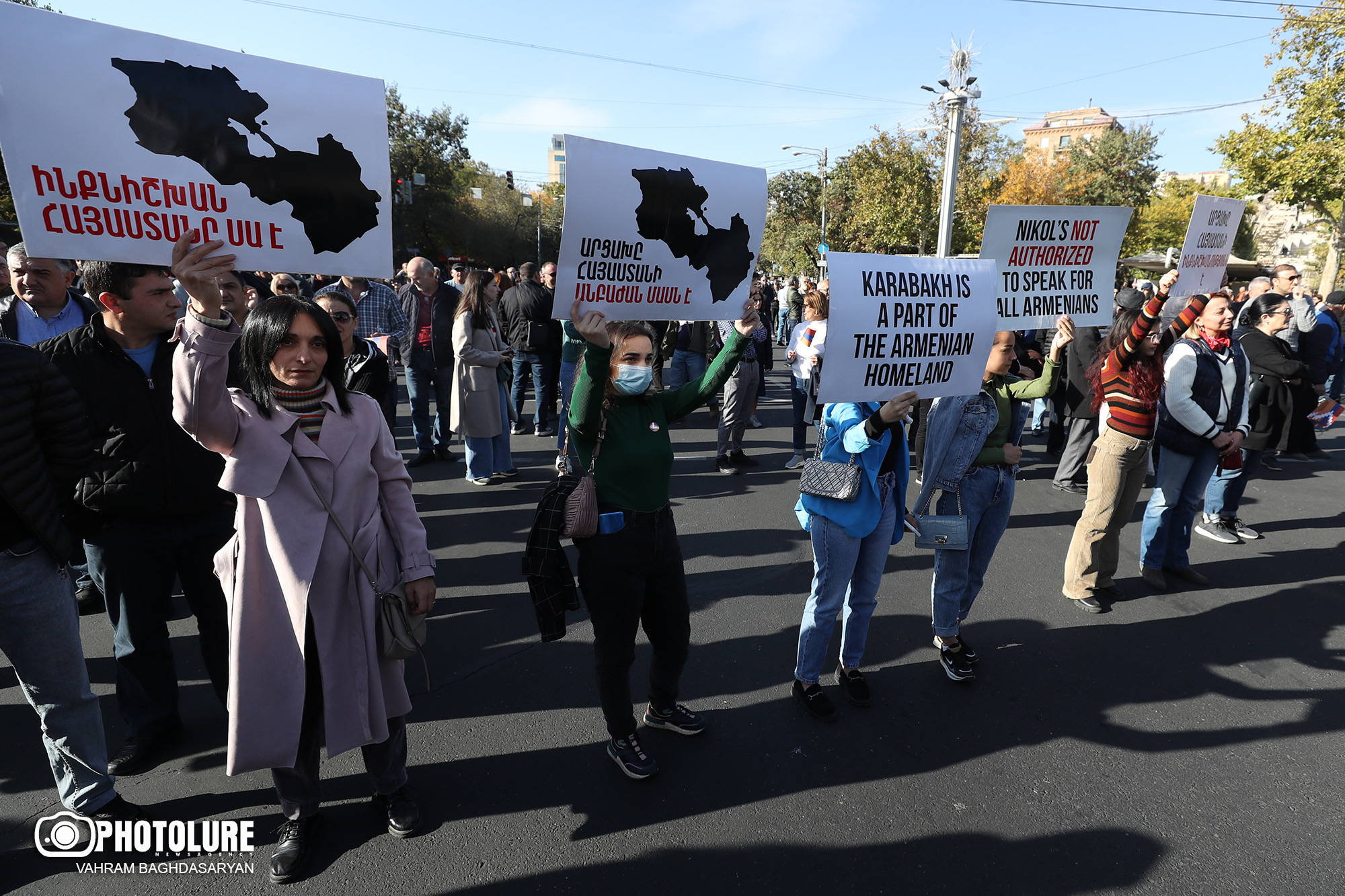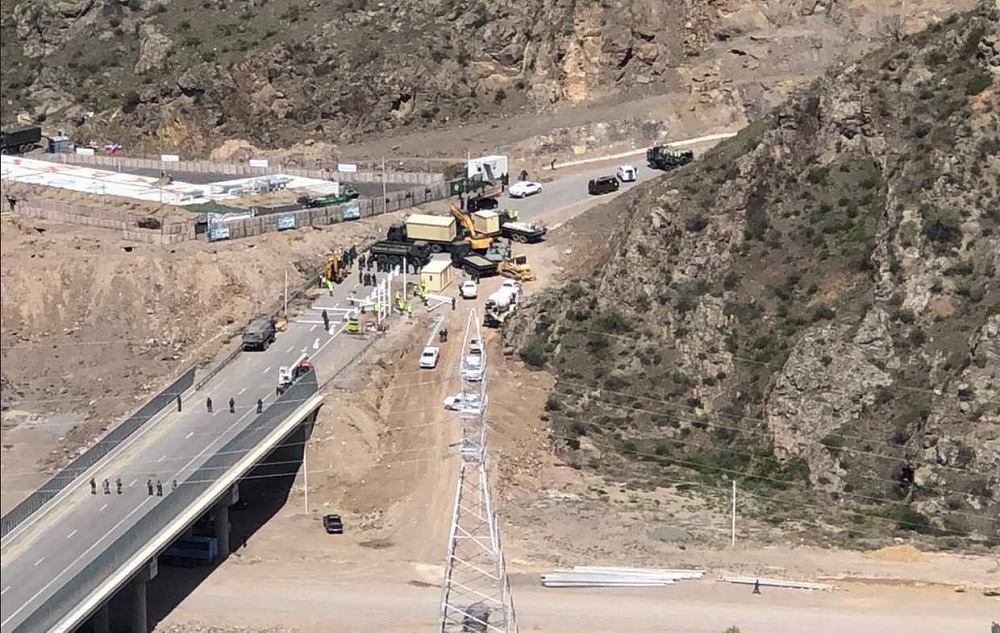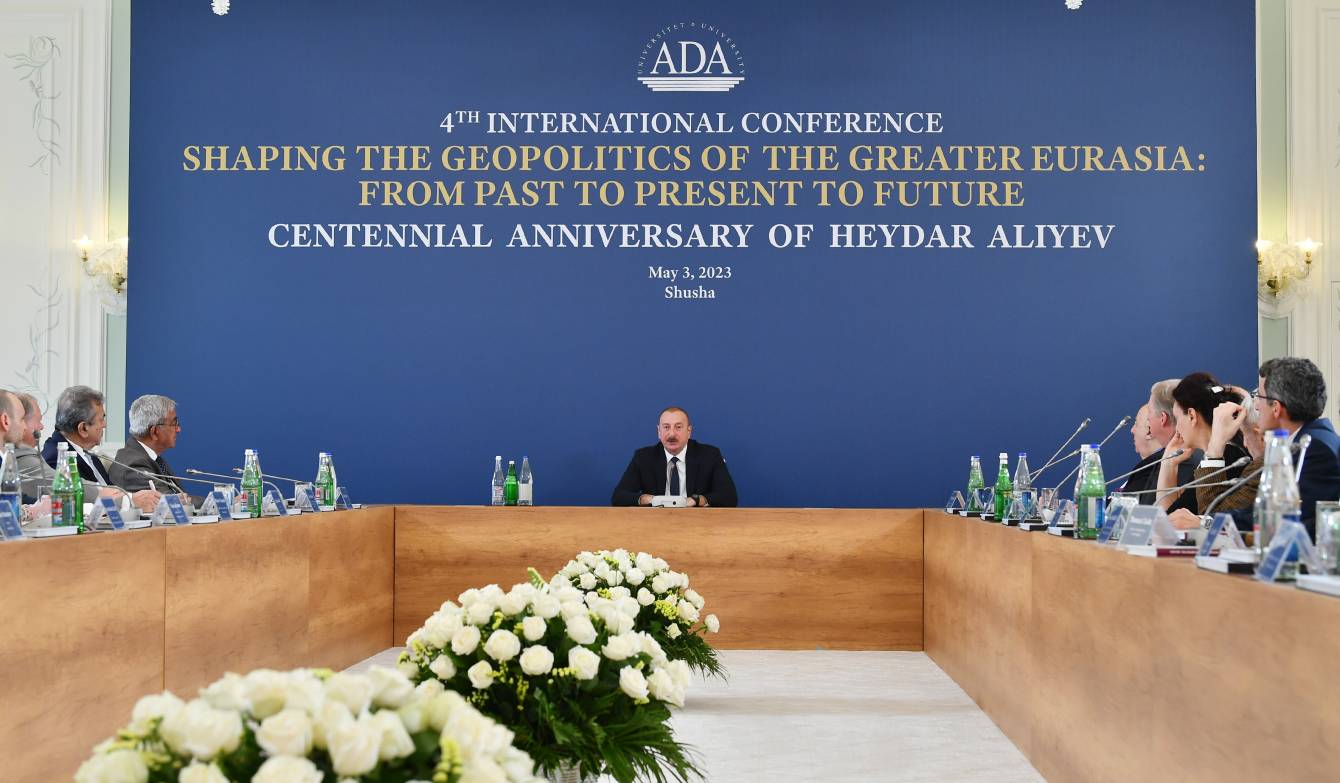Assessment of Pashinyan-Aliyev-Michel meeting by analysts in Baku and Yerevan
Outcome of Pashinyan-Aliev-Mishel negotiations
On May 14, the fifth meeting between the Prime Minister of Armenia and the President of Azerbaijan took place in Brussels through the mediation of the President of the European Council, Charles Michel. At the end of the talks, Michel reported “undoubted progress.”
The parties again recognized ech other’s territorial integrity, where Azerbaijan is designated as 86,600 km². This means recognition of the territory of Azerbaijan, including the territory of the former NKAR within its composition. Ilham Aliyev and Nikol Pashinyan agreed on the imminent return of “detainees” to their homeland.
- Georgian opposition statement: Country on the verge of international isolation
- “Azerbaijani socks” from an American teacher
- “Snatching the maximum from Armenia”: opinions on the escalation on the border with Azerbaijan
Points of Charles Michel’s statement
- The exchange of views was frank, open and results-oriented.
- The leaders shared a common readiness for peace in the South Caucasus.
- Following the recent positive talks in the US, momentum must be maintained for decisive steps towards signing a comprehensive peace agreement between Armenia and Azerbaijan.
- Progress on border issues – the leaders agreed to resume relevant bilateral meetings.
- The negotiators reaffirmed their unconditional commitment to the 1991 Declaration of Alma-Ata and the respective territorial integrity of Armenia (29,800 km²) and Azerbaijan (86,600 km²).
- Positions on the issues of unblocking transport and economic ties in the region are very close – in particular regarding the resumption of railway communication with and through Nakhichevan.
- Relevant groups are instructed to agree on an agreement in principle on the conditions for the opening of the railway connection and the necessary construction, along with a specific timetable.
- The leaders agreed to enlist the support of the World Customs Organization in supporting this.
- The detainees will be released in the coming weeks. “I emphasized the need for mutual understanding regarding the military personnel who simply got lost and switched sides, and that they will continue to be released on an expedited basis,” Michel said.
- The issue of the rights and security of Armenians living in the former Nagorno-Karabakh Autonomous Region was discussed. “I called on Azerbaijan to develop a positive agenda to ensure the rights and security of this population in close cooperation with the international community. I also raised the issue of the need for a transparent and constructive dialogue between Baku and this population,” Michel said.
- The EU has no hidden agenda. Our only goal is to help Armenia and Azerbaijan achieve a comprehensive and just peace. We are ready to contribute to their joint efforts.
- We have agreed to meet in Brussels as often as necessary. The leaders will meet again in Brussels in July.
- In the very near future, we will meet again with French President Macron and German Chancellor Scholz on the sidelines of the second Summit of the European Political Community in Chisinau.
- I also intend to invite the leaders to another such meeting on the sidelines of the third EPC summit in Granada in October.
Commentary from Yerevan
Political observer Hakob Badalyan says:
“Yerevan has repeatedly stated that it has no territorial claims against Azerbaijan. Despite the insistence from Nagorno-Karabakh that Artsakh will never be part of Azerbaijan, under these conditions it is unrealistic to expect a discussion of the status issue. However, the question of the status should be kept open, and one should try to put it on the agenda step by step. Of course, this will also depend on the logic of the development of the international situation.”
“Aliyev will not be forced to do anything for the Armenians of Nagorno-Karabakh”
According to Badalyan, Western mediators will not force Ilham Aliyev to do anything to protect the rights of Armenians, because Europe needs Azerbaijan for a number of reasons. He says that Michel only calls on Aliyev to “give a little positive tone to the processes” so that they can support the position of Azerbaijan:
“During the meeting and after it, Michel did not in any way raise the topic of the blockade of Nagorno-Karabakh, he did not say that the blockade of 120,000 people in NK was, to put it mildly, inhumane and so an anti-European policy.”
“There are no prerequisites for progress in the railway issue”
Badalyan says that it is difficult to imagine what progress could have been made regarding the Yeraskh-Julfa-Ordubad-Meghri-Horadiz railway:
“If there are such agreements, it means that either Azerbaijan has retreated from its approaches, or Armenia. In addition, apart from technical issues, there are also political ones. For example, the mode of cargo transportation. Russia, Iran and Turkey also have different views on this issue. It is hard to imagine how long-term substantive agreements on this issue could be reached.”
“Substantial progress in negotiations is still unlikely”
According to Badalyan, substantive results in the negotiations can be expected if
• Russia will transfer powers to the Western platform and will not try to interfere, and Turkey will do the same,
• Russia, the US and Europe will be able to combine their approaches to such an extent that they can act together and implement them.
However, both points are not yet realistic, so progress is unlikely.
Badalyan believes that Russia is aware of its “problems of effective moderation of negotiations” and is trying to cede the initiative to the West:
“The West cannot but take this initiative, at the same time, it must show that it is more efficient and successful. The chain of successive diplomatic meetings pursues precisely this goal.”
“The return of prisoners is a humanitarian gesture, but not only”
Badalyan does not rule out that the agreement on the “liberation of the detainees” will be fulfilled and the group of prisoners will return home. He welcomes this agreement, but believes that, by and large, this is a propaganda move:
“This will be an example of a positive policy on the part of Azerbaijan. Also, it will allow Michel, or the western platform, to show that there is some positive outcome. The return of prisoners cannot be perceived as an unequivocally humanitarian gesture. This is where the political bargaining formula comes into play.”
He says that Michel’s statement refers to the release of lost soldiers under an accelerated procedure, while there are no soldiers from the Armenian side:
“There are no such people from the Azerbaijani side either, although Baku is trying to present the two Azerbaijanis who recently entered the territory of Armenia as lost. And one of them is accused of murder. In any case, I see a high probability that we are talking about their return.”
“It’s not about choosing capitals”
The statements of the Armenian authorities that the negotiating agenda is the same for them, regardless of where the negotiations take place, Badalyan considers the correct position:
“It is important to emphasize that they go to this or that capital not to “play their game”, but to solve their problems, protect their rights and interests. And where there is effective protection, of course, we will work more intensively there.”
Comment from Baku
The absence of any conditions for the mutual recognition of the territorial integrity of Azerbaijan and Armenia, political observer Haji Namazov called the “main achievement” of the negotiations in Brussels.
“Until now, Armenia has declared the recognition of the territorial integrity of Azerbaijan, but has always left the issue of the mountainous part of Karabakh open. This was followed by statements from Yerevan that the Karabakh conflict was still not settled, saying that this issue should be taken out of the peace treaty.
For the first time, the areas of countries in which they recognize the territorial integrity of each other are indicated. This is very important for overcoming the obstacles facing the parties in the cause of a peaceful settlement.
Now no one should doubt the question of the part of Karabakh where the Armenian population lives. It remains to agree on security issues. But there are still points that require clarification.
The Armenians themselves demand an international mechanism for negotiations between Baku and Khankendi (Stepanakert). I note that the parties officially met twice with the mediation of Russian peacekeepers, which is in fact an international mechanism, because the Russian army in Karabakh cannot in any way be called an interested party.
Twice the Armenians of Karabakh were invited to Baku to continue negotiations, but both times they did not receive a positive response. I think that another similar invitation will soon follow, from which representatives of the illegal regime in Khankendi will not be able to refuse due to the circumstances in which they find themselves at the present time. They need this meeting more than official Baku.
As for the issue of the exchange of detainees, here Baku is unlikely to go for the “all for all” scheme. Two Azerbaijani citizens were arrested in Armenia, who are called prisoners in Baku and saboteurs in Yerevan. Exactly the same wording is used to denote the status of Armenian citizens imprisoned in Azerbaijan. Most likely there will be a two-for-two exchange.
Now the main issue is the approval of the agreements reached in Brussels in Moscow, where a meeting of the leaders of Azerbaijan and Armenia, as well as foreign ministers, has already been announced.
Let’s face it, recognition of the territorial integrity of countries in certain areas was not part of the Kremlin’s plans. They have always tried to leave the Karabakh issue open. Because the narrowing of the issue of the Armenian population of Karabakh to their security and rights within Azerbaijan puts a big question mark on the topic of the presence of Russian peacekeepers in the region after 2025,” Namazov said.






















